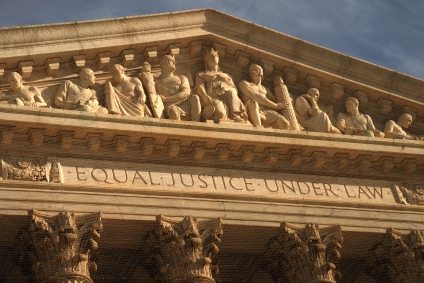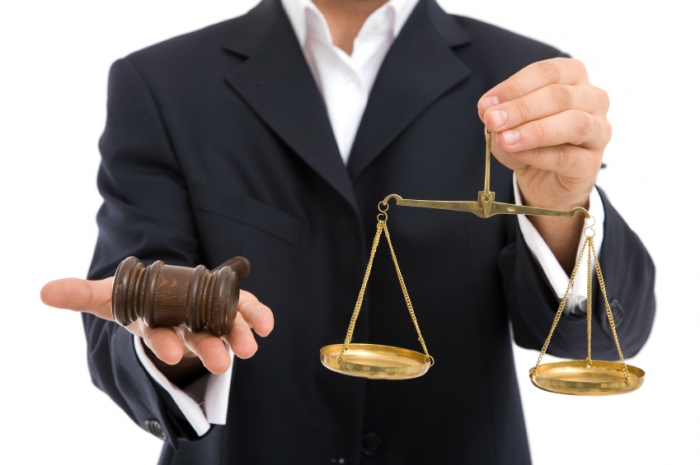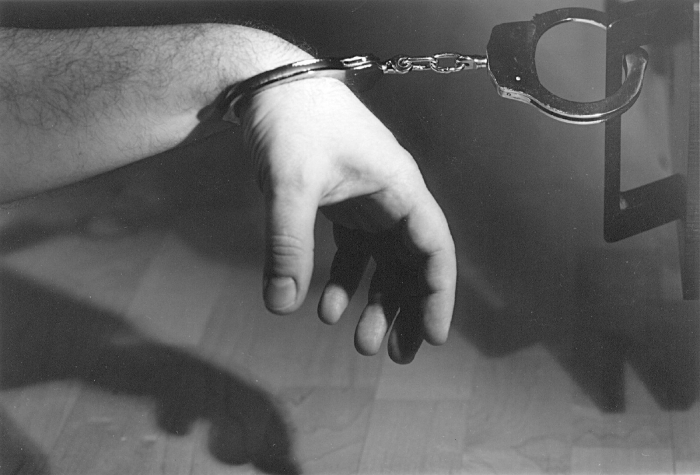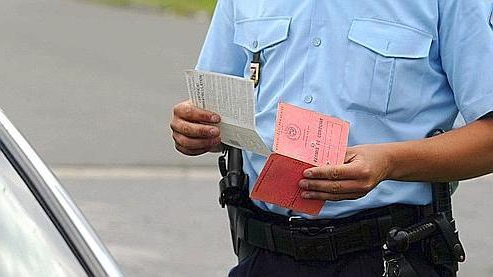I must say that every year a large number of offenses are recorded that entail a certain type of punishment. Regardless of whether you are a lawyer or not, you need to know what the offense is and how it is punishable. Perhaps this knowledge will protect you from the problems and hardships associated with violation of public rules.
There are different types of legal liability. However, to begin with, you should deal with the concept itself. Next, we consider the varieties, functions, signs and principles of this responsibility.
What is a concept?

It should be noted that a single definition does not exist. Each specialist interprets the concept of legal liability in his own way. The fact is that it concerns various branches of law: civil, criminal, labor and administrative. This is a kind of social responsibility, the reaction of the state to the offense.
Now let's try to define this concept. Legal liability - the right of the state to impose certain coercive measures or sanctions on a person who committed a violation that entailed an adverse effect. In this case, the offender suffers personal and organizational deprivation established by law.
Types of Responsibility
Since the emergence of private property and the work schedule, people have also appeared who do not want to put up with established standards of behavior and life. Naturally, they began to commit offenses that could not go unpunished. Therefore, it should be clarified what types of legal liability exist today and how they are characterized.
This article will examine the retrospective legal liability for breaking the law, that is, negative. There are several of its classifications. For example, depending on what structures will deal with the violation, responsibility is imposed by the authorities, executive services, and the court. You can receive punishment individually or collectively.
The most important classification is the definition of responsibilities by industry. So, the legal liability for the violation can be divided as follows:
- Criminal It refers to those who have committed a serious crime. Only individuals can be punished, even to the detriment of their own rights. It is characterized by a strictly regulated form of investigation and the sentence imposed by the court. In addition, the presented legal responsibility of individuals implies the availability of special documents, the application of preventive measures, the exercise of the right to defense, a compulsory medical examination, and the possibility of reviewing a sentence.
- Administrative It refers to those people who committed a violation of generally binding rules, and the consequences can be severe both in moral and in terms of property. In this case, both individuals and legal entities can be involved. The penalty is usually a fine, administrative arrest temporary removal from office or deprivation of special rights, confiscation of property, correctional labor, warning.
- Civil law. It occurs for legal entities or individuals who have violated contractual obligations, thereby damaging the other party.Moreover, the damage can be both personal and property. In rare cases, these types of legal liability may govern intangible relationships. Most often, her character is compensatory. It is considered in administrative, arbitration or judicial proceedings.
- Material. She is the easiest. Such liability is incurred by persons who have committed a violation of labor rights that entailed material damage. It happens limited or complete. Such liability shall be repaid after compensation for damage.
- Disciplinary. Comes for violation of the work schedule: being late for work, failure to fulfill duties, appearing drunk. As punishment, dismissal, reprimand or other penalties may be used.
So we examined almost all types of legal liability.
What functions are characteristic of legal liability?

I must say that this tool for regulating social relations is needed for certain purposes. It was created not in vain. Therefore, you have the opportunity to find out what functions of legal liability exist:
- Security. It is called to protect the rule of law established by the state.
- Punitive. Provides punishment for breaking the law.
- Security. She is responsible for the normal operation of the system of regulation of public relations.
- Remediation. Thanks to it, compensation is provided for the specific damage caused by the offender.
- Educational. And not only for the criminal, but for the whole society.
- Preventive. Provides warning of any offenses.
These are the main functions of legal liability. They ensure the normal functioning of the law enforcement system.
Principles of Responsibility

It should be noted that any punishment initiated by government bodies cannot be imposed arbitrarily. There are certain principles of legal liability:
- The principle of inevitability. Any violator should know that his misconduct will not be left without punishment.
- Responsibility. Sanctions apply to the one who committed the crime.
- Legality. Only competent authorities can investigate the offense in accordance with applicable law.
- Guilty. A criminal can only be punished after his guilt has been proven. Moreover, the presumption of innocence exists in the country.
- Justice. No one can escape punishment if he has committed an unlawful act.
- Expediency and validity. The sanctions imposed must be proportionate to the crime. Moreover, the punishment should only be after a thorough investigation. For one crime, only one type of deprivation can be assigned.
- Legal equality. All criminals can be punished, regardless of social status, regalia, religion, color and gender.
- Humanism. State authorities must ensure a thorough and truthful investigation. However, they do not have the right to humiliate the honor and dignity of the suspect.
These principles of legal responsibility allow law enforcement and administrative authorities to ensure the efficient operation of the state system.
Signs and purpose of legal liability
Regulation of public relations should be effective. Its main goal is the general prevention of the commission of illegal actions, the influence on the consciousness of the criminal, the restructuring of his morality. In addition, bringing to legal responsibility ensures the protection of the rights and freedoms of law-abiding citizens, the observance of a generally recognized order. If people follow the established rules, the risk of chaos is reduced.
Now you should consider the signs of legal liability. There are several of them:
- Responsibility is directly related to the subject who committed the crime.
- It is always negative.
- The administrative responsibility of legal entities or ordinary citizens, like its other types, is characterized by state law enforcement. In this way, the authorities fix those norms of behavior in society, the violation of which entails negative consequences. Coercion includes investigation of the offense, consideration of specific crimes, imposing sanctions on the person who committed the act, as well as monitoring the execution of the sentence.
- Because of his behavior, a person suffers serious hardship. Sanctions would not be applied if the offense had not been committed.
It should be noted that all signs of legal liability are mandatory.
Grounds for liability

I must say that not every crime can entail punishment. For this we need the basis of legal liability. There are only a few:
- The commission of a crime, which must have a composition (all its components).
- The presence of a legal norm that allows you to classify this act and apply a certain type of sanctions.
- A recorded fact of a crime. Without it, the competent authorities cannot punish the offender.
The grounds of legal liability make it possible. On the other hand, an offense is already a prerequisite for the work of state bodies. That is, it is already considered the basis for determining sanctions, if, of course, the act is fixed.
What is an offense, its features

So, we have considered the concept of legal liability. Now we should decide what the offense is. Naturally, in jurisprudence there is no unequivocal answer to this question. However, you can define this concept yourself.
An offense is a harmful, socially dangerous action, which is prohibited by established legal norms and is aimed at knowingly or unknowingly causing physical, moral or property damage. Such an act contributes to the disorganization of the usual way of life, the emergence of some tension in society.
Any crime is characterized by an encroachment on universally established values and priorities. The result of the offense is any damage, as well as the administrative liability of legal entities, ordinary citizens or other types of punishments.
Naturally, crimes are different, so deprivation should be selected accordingly. For example, misconduct is a rather light act, which in very rare cases leads to imprisonment. As for more serious violations, it all depends on their composition.
Corpus delicti
As you already know, not every illegal action can entail punishment. It is important that the crime has all the elements of the composition. Only in this case the offense and legal liability are interconnected. Naturally, you should figure out which components are part of the crime:
- An object. These are those social values that are established by the state and should not be violated. They are protected by law.
- Subject. This is the person who committed the offense. Moreover, the crime can be carefully planned or completely random.
- The objective side. It is characterized by the size of the damage caused, its type and consequences.
- The subjective side. Refers to the violator of the law. That is, it is characterized by the motives of the person, the choice of the strategy of his behavior, his own attitude to what is happening, to what will happen after the act.
Only if all of these elements are present can responsibility come. In addition, one should take into account the danger of the deed to society.And it is characterized by the identity of the offender, the way, time and place of the crime, the size of the harm done, the significance of the action.
What are the consequences of an offense?

It should be noted that any crime is characterized by negative actions. So, there can be no positive consequences for both parties in principle. For the public or private individual, this is:
- physical harm to health;
- moral and psychological problems;
- property damage;
- humiliation of dignity;
- waste of time and nerves during the investigation.
For organizations, such a consequence can be a significant loss of funds, failure of contracts, loss of reputation and partners, bankruptcy, damage to property, and more.
I must say that the offender himself is doing a disservice. If his guilt is proved, he faces a certain responsibility, depending on the type of crime and its seriousness. For the violator, the following consequences may occur:
- restriction or imprisonment;
- administrative arrest;
- warning or reprimand;
- fine or confiscation of property and others.
In addition, a person who transgresses the law receives an appropriate public attitude.
Can punishment be avoided?

Offense and legal liability are two interrelated concepts that can rarely exist without each other. But not in all cases a person can be punished for an illegal act. There are exceptions in modern jurisprudence that should be considered:
- Prescription of a crime. That is, at the time of the investigation of the act, it no longer had a danger to the victim or the public.
- A document of clemency or amnesty. It is signed by the president. Whether the offender falls under the amnesty is decided by a special commission.
- In the case of juvenile offenders, coercive educational measures may be applied. In this case, a delay in the execution of the sentence may also be used.
- Exemption from punishment due to a serious illness that cannot be cured if a person is in prison.
- Transfer of all case materials to the labor collective or the public.
- Grant of parole.
- Necessary defense or damage through negligence. In this case, the offender did not have malicious intent and did not want the negative consequences for the victim.
- An urgent need. In this case, the harm caused by the commission of the crime is much less than it could have been if the violation had not occurred.
- Mental or physical coercion by another person.
- Justified risk. That is, the crime was committed with good intentions, and they were fully justified.
- Execution of the order.
- The minor significance of the offense.
- Insanity. It provides for compulsory medical examination and treatment (if necessary).
That's all the features of legal liability. Naturally, in each case there are some nuances, but they will not be considered in this article. Good luck!








